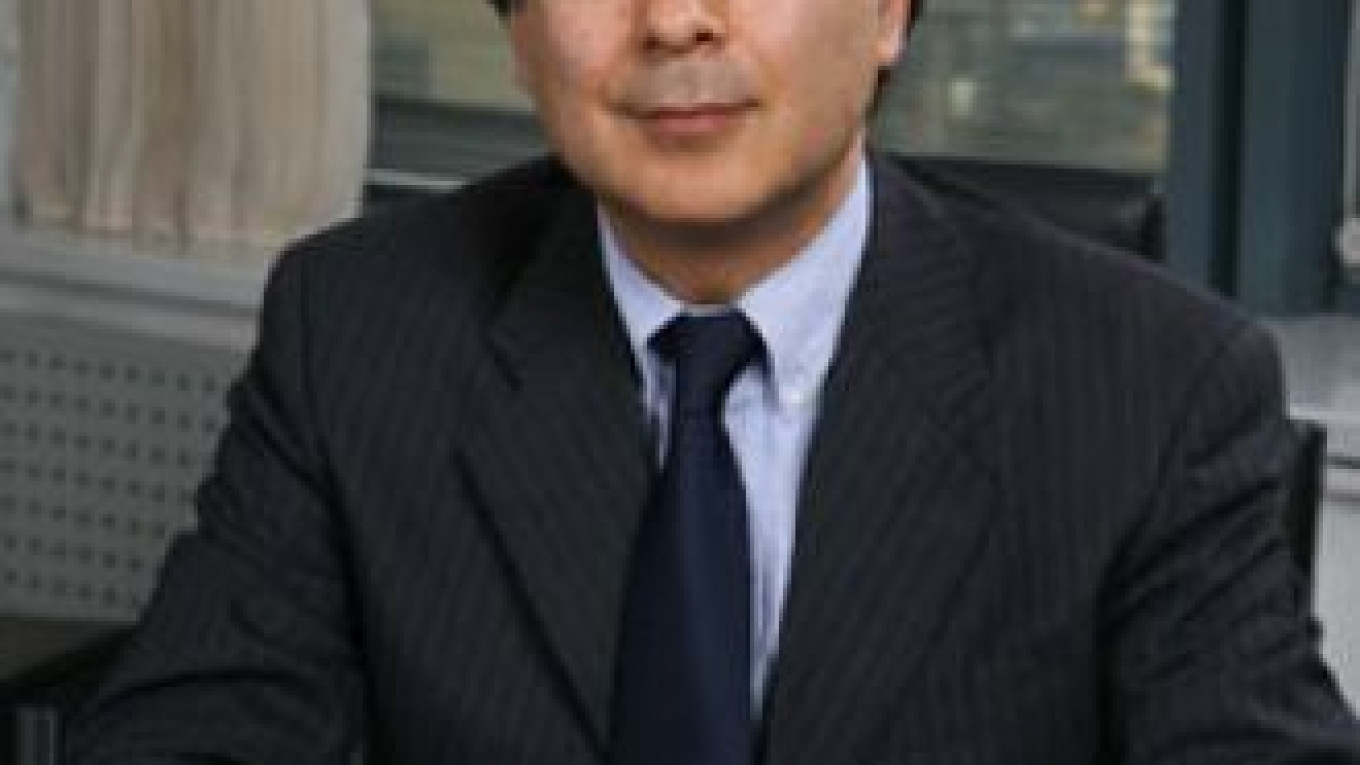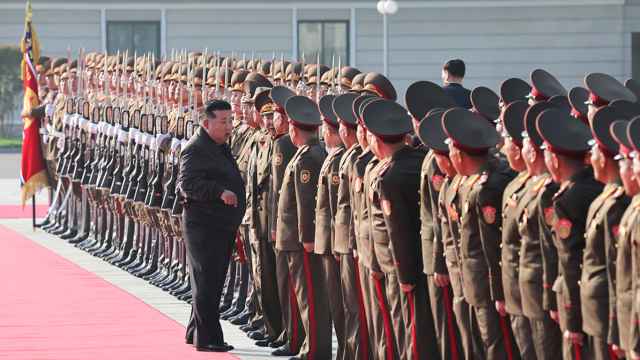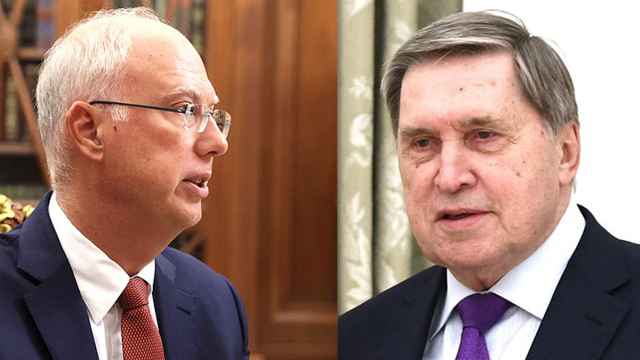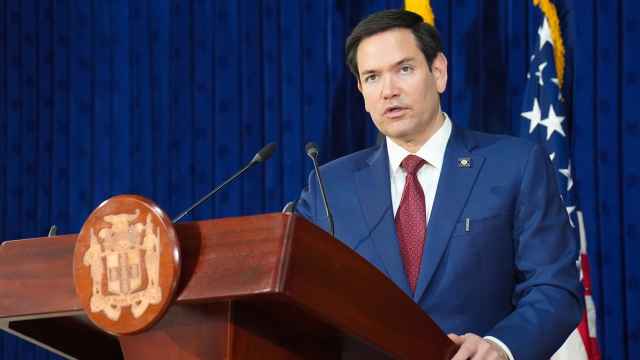In 1989, Farhad Moshiri was an emigre in London pulling a paycheck at Deloitte & Touche when he met Alisher Usmanov. Now, after a two-decade alliance with Russia's current richest man, the Iranian-born accountant is a billionaire himself.
Moshiri, who owns 5 percent of Usmanov's Metalloinvest Holding, Russia's largest miner of iron ore, and 15 percent of Arsenal Football Club, is worth at least $1.1 billion, according to data compiled by Bloomberg.
Usmanov, 58, rewarded Moshiri, 56, for years of service as an adviser and confidant in 2008, granting him a 10 percent stake in Gallagher Holdings, through which Usmanov controls Metalloinvest.
"He was consulting me for decades on different deals and exercised his option, fairly getting the stake," Usmanov said in a telephone interview from Moscow. Usmanov and Moshiri both declined to elaborate on the terms of the option.
Metalloinvest accounts for the bulk of Usmanov's fortune, which has swelled to more than $20 billion through timely bets on tech companies including Facebook. Metalloinvest is worth at least $16 billion, valuing Moshiri's share at a minimum of $800 million. The company values itself at as much as $20 billion, chief executive Eduard Potapov said in February.
For Moshiri, the road to riches started with a revolution.
"My parents fled Iran in February 1979, just before the Iranian Revolution," Moshiri, now a British citizen, said by e-mail. "My father was an army doctor who trained as a pathologist and later became a senior military judge. My mother came from Iran's leading publishing house, Kayhan, which is now based in London."
The billionaire studied accounting at the University of London and worked at Ernst & Young and Pannell Kerr Forster before joining Deloitte & Touche. He said he met Usmanov through a mutual friend, Masoud Alikhani, when Usmanov was in London as part of a "high-level delegation" seeking ways of setting up a political-risk insurance company to encourage foreign investment in the Soviet Union.
"I was very taken at the time by his intelligence and the speed at which he absorbed complex ideas," Moshiri said.
The feeling was mutual, Usmanov said, who was born in the former Soviet republic of Uzbekistan, which, like Iran, borders Afghanistan.
"We became friends almost at once," Usmanov said.
One of Moshiri's accounts at Deloitte & Touche was Middlesex Holdings, a London-registered investment company in which Usmanov and Alikhani held shares. In 1993, Middlesex hired Moshiri from Deloitte & Touche and within a few years made him an executive director. Through the years, he began earning Usmanov's trust by analyzing — and challenging — his investment ideas.
Middlesex, among other things, bought and sold aluminum produced at the TadAZ smelter in Tajikistan, said Alexander Vladislavlev, a former deputy foreign minister of the Soviet Union who sat on the company's board.
"It was basically the first London-listed company that had Russians as shareholders," Vladislavlev said in an interview in Moscow.
Middlesex was also acquiring assets in the former Soviet Union, including about 8 percent in the Oskolsky steel mill in central Russia by 2000, which is now a Metalloinvest unit. Middlesex was later renamed GNE Group and sold.
"With time, Moshiri actually became my financial mentor," Usmanov said in the telephone interview. "I appreciate his honesty and his encyclopedic knowledge of finance and investments, although some of my most successful investments I did contrary to his opinion."
In 2003, for example, Usmanov said that when he started buying shares in Corus Group, a British steelmaker now part of Tata Steel, Moshiri was "strictly against" the move. Even so, Moshiri "brilliantly led this deal through," Usmanov said.
Under Moshiri's management, Usmanov's Gallagher spent about $300 million to gain 13.4 percent of Corus before selling the stake in 2005 for more than $600 million.
"Moshiri also didn't believe in the prospects for investments in Facebook and Groupon," said Usmanov, who controls stakes in both companies through DST Global, a fund run by Yury Milner, another billionaire.
Moshiri has been chairman of Metalloinvest since 2006 and represents Usmanov on the boards of some of the other companies Usmanov owns shares in, including Norilsk Nickel, Russia's largest mining company, and MegaFon, the second-largest mobile-phone operator in the country.
Not all of Moshiri's investments involve Usmanov. He bought 9.9 percent in 2007 of Panmure Gordon, one of Britain's oldest stockbrokers, without Usmanov's help. Now he holds 4.99 percent in the company.
Still, the partners share a love of soccer, particularly Arsenal. Their Red and White venture bought 15 percent of the London club in 2007 and have since increased that stake to 30 percent. Moshiri is an equal partner in the investment, according to Arsenal's website. A 15 percent stake in the club has a market value of about $238 million, based on the April 3 closing price on the London Stock Exchange.
"I love Arsenal, that's why I'm a shareholder," Usmanov said in an interview last year.
Moshiri said he was attracted to Arsenal's "position as a top London club" that had just moved into a "purpose-built" stadium that can seat 65,000 fans.
It's one asset they may never sell.
"We're keen to invest further to secure the future success of the club on the playing field," Moshiri said.
A Message from The Moscow Times:
Dear readers,
We are facing unprecedented challenges. Russia's Prosecutor General's Office has designated The Moscow Times as an "undesirable" organization, criminalizing our work and putting our staff at risk of prosecution. This follows our earlier unjust labeling as a "foreign agent."
These actions are direct attempts to silence independent journalism in Russia. The authorities claim our work "discredits the decisions of the Russian leadership." We see things differently: we strive to provide accurate, unbiased reporting on Russia.
We, the journalists of The Moscow Times, refuse to be silenced. But to continue our work, we need your help.
Your support, no matter how small, makes a world of difference. If you can, please support us monthly starting from just $2. It's quick to set up, and every contribution makes a significant impact.
By supporting The Moscow Times, you're defending open, independent journalism in the face of repression. Thank you for standing with us.
Remind me later.






